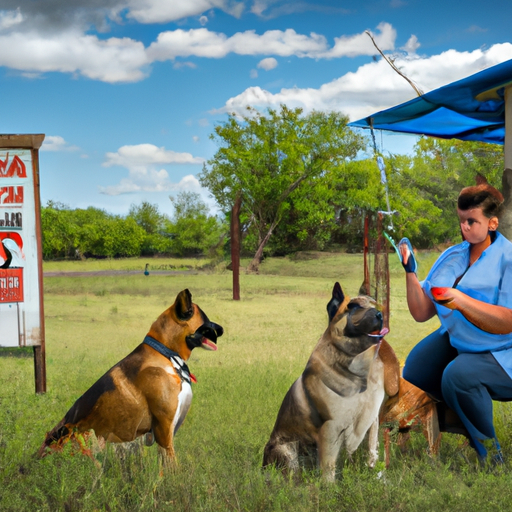“`markdown
How Often Should Dogs Get Rabies Shots in Texas?
Introduction
Your faithful canine companion looks to you for care and protection. As a caregiver, one of your top priorities is ensuring that they stay healthy. One vital aspect of their health is their protection against rabies, a deadly disease that can be devastating to dogs and humans alike.
The Importance of Rabies Vaccination
Rabies is a viral disease that affects the nervous system, leading to paralysis and, ultimately, death. In Texas, as in many other states, rabies is most often transmitted by wild animals like bats, skunks, and raccoons. Your dog, always curious and ready to investigate, can easily come into contact with these carriers.
The best way to protect your dog from this deadly disease is through vaccination. The rabies vaccine is not just a recommendation—it’s a legal requirement in Texas.
Rabies Vaccination Schedule in Texas
In Texas, the law requires dogs to receive their first rabies vaccination at 16 weeks of age.
After the initial vaccination, your dog should get a booster:
- One year after the initial vaccination
- Every one to three years thereafter, depending on the type of vaccine used
| Age of Dog | Vaccination |
|---|---|
| 16 weeks | Initial Rabies Vaccination |
| 1 year later | First Booster |
| Every 1-3 years | Subsequent Boosters |
When to Consult a Vet
Sometimes, your dog may show adverse reactions to a vaccine, such as fever, swelling, or loss of appetite. These reactions usually subside within a few days. However, if your dog seems overly lethargic or unwell, don’t hesitate to consult your vet.
Remember, your vet is your best ally in ensuring the health and well-being of your furry friend. Regular check-ups, timely vaccinations, and immediate attention to health issues will go a long way in keeping your dog happy and healthy.
Conclusion
As a caregiver, you want the best for your dog. Staying on top of their vaccination schedule, particularly for rabies, is crucial. It not only ensures their health but also protects you, your family, and your community from this deadly disease.
FAQs
Q: Can I vaccinate my dog for rabies myself?
A: No, rabies vaccinations must be administered by a licensed vet in Texas.
Q: How will I know if my dog has adverse reactions to the vaccine?
A: Common reactions include fever, swelling at the injection site, and mild lethargy. If your dog shows severe symptoms or if symptoms persist for more than a few days, consult your vet.
Q: Can I skip a scheduled rabies shot for my dog?
A: No, it’s against Texas law to skip scheduled rabies vaccinations for your dog. Plus, it puts your dog and others at risk.
“`



